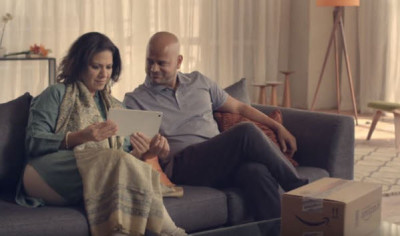by Vani Viswanathan
The traffic light turned red, and I stopped the car. My daughter, in one of her sullen teenage moods, looked out the window into the dusty Delhi heat. The usual Delhi red signal scene unravelled before us: women with children asking for alms, children with brown matted hair doing antics in small, dangerous gaps between vehicles, men selling an assortment of things. Poverty in various forms, shapes and ages.
Suddenly, my daughter spoke. “Amma,” she asked. “Do you and Appa have a marriage fund for me?”
I woke from my heat-induced reverie. I looked at her and followed her eyes to a billboard and found the source of her question. A bank ad which spurred its target audience (only men, it seemed) to start a special savings account that allowed one to save for a dream expense. A son’s education abroad, a European holiday, a villa… and a daughter’s “dream wedding.” I was disgusted. This was 2016, and the only daughter-related expense they could think of was a wedding?!
“No, Mira,” I told her. “We are saving up for your college education, though. That will help us if you decide to study overseas…”
“Hmm,” she mused. “Isn’t it odd that they only suggest an overseas education fund for boys? As if women don’t ever study abroad!”
“Unfortunately, a lot of women don’t. Millions of Indian women don’t even get past secondary school!”
The light changed to green and I started the car.
“I know. We were discussing it in school the other day… but the ad is clearly talking about someone who won’t think much about educating his daughter, don’t you agree? It’s just that according to the ad, the best thing he can do as a father is to give her a dream wedding!”
I was surprised at her ability to dissect the ad. I didn’t know if I wanted to complicate the topic by discussing the social pressures the average family had to throw a traditional wedding that displayed opulence to the best extent possible. That often, a grand wedding was the bride’s “saving grace” in the family of the man she married into. Patriarchy worked in such complex ways! For now, I was happy that my daughter understood that she could aspire for more than a wedding and marriage.
“You know,” I told her, “Your father and I wanted to plan and spend on our wedding on our own, rather than have my parents organise it. That way we’d have control over what we spent on, whom we invited and how extensive the rituals were going to be. All your grandparents thought the idea was nonsensical! They said they had a status in the society and they could not leave out people or be party to a simple wedding! I regret it to this day. I wish your dad and I had made our case stronger and pushed ahead with it.”
She seemed to be mulling it over. “For my wedding, I will only come to you for financial help if I need it!”
Sounds like a plan, I thought. I hoped that a wedding would be no big deal by the time she wanted to get married. I hoped that she had other things to dream of too – years of travel, art, a career she loved, something. Amused at the way I was thinking, I realised that she might not be straight, might not want to marry her partner, or never marry at all!
As if reading my thoughts, she said, “What’s the big deal with marriage anyway? What’s the point of all my education if I have to end up cooking, cleaning and working, while my husband watches TV? You know, like that man in the Ariel ad where the father apologises to his daughter. His wife is literally running across the room and he tells her he is hungry without lifting a finger to help! And this clearly educated woman doesn’t even think of stopping to slap some sense into her husband… she is also at fault for encouraging him!”
I agreed. “It’s not that easy though, you know, to break out of that notion. We are talking about hundreds of years of people learning that this is the norm, and men and women believe in it equally. Men should earn, women should keep the home running. Now while we have made progress in that more women are getting educated or working outside of home, we still think the home is the woman’s territory. Many people in fact believe that because someone is born a woman, she has a natural ability to handle the home, care for people, and so on. Just because you and I are women, it’s like we have cooking coded in our genes!”
I paused for a moment, and as if on cue, we both burst out laughing. My skills in the kitchen were less than basic and our family got by with many hands in the kitchen – mine, my husband’s, my daughter’s and occasional help from outside.
“But let’s think about it. Even your father believes that you wouldn’t be half the star you are if I weren’t taking care of you from when you were born until you were old enough to start full-day school. We argued to no end, but I had to give in because our parents could not babysit, we didn’t want to have a nanny and someone needed to be with you. As the person who gave birth to you, there was hardly any doubt in your father’s mind that I was ‘born’ to do it.
“I was scared. I was a clumsy person. The internet wasn’t what it is today, and I had no way of quickly checking what to do about the rash on your arms. For your father and the world, though, it was as if I knew it all. When he’d come home and see something wrong with you – a rash, a cold – I’d hear the worst of it. Suddenly, the man who thought I was best placed to take care of you, would come up with a variety of suggestions on how to take care of you. ‘If you know what to do,’ I’d scream, ‘why don’t you do it and let me go back to work?’”
“So you wanted to work even when I was a baby?” she asked.
“It’s not like I regret being with you in those important years, but I think I would have liked to continue working too. It’s just that I didn’t have a way to make it work without going mad. If I did get back to work, I’d have had to leave you with a nanny and worry whether she was taking care of you well. The working world judges a woman who rushes home to be with her children harshly. My promotions would have been delayed and my loyalty questioned!
“I do wish I worked, though, so I didn’t have to ask your father each time I wanted to buy something.” Seeing her shocked expression, I rushed to clarify. “No, he never hesitated to give me money for anything. But you know, there’s something so wonderful about earning your own money and spending it! If I was earning, I’d have bought you all the beautiful things I could lay my hands on. Denim shorts, tiny running shoes that look like Nike’s, more kurtas for myself, silver jewellery that I was so fond of… I really had to hold my heart back because I didn’t want to be seen as spending on frivolous things!”
“But are they really frivolous, Amma? You remember that new Amazon ad? Where the husbands think the wives spend on hundreds of shoes and clothes… is that a bad thing to do? What if I earn and spend on myself after ensuring I’ve saved enough as a family? And it’s not like men don’t splurge… look at the number of books and magazines Appa buys each month! And the number of tool kits he’s bought!”
I grinned. “Glad you mentioned that! I guess the world generally doesn’t like women taking care of themselves! It’s okay if you do it as a kid, or even as a single woman, but your sole reason for looking good, it would seem, is to ensure you can get married. If you do it because you enjoy it, oops! That means you’re distracting yourself from your core task of helping the family run.
“That’s why the ad tries to make women ‘heroes’ by saying that even though they like to splurge, they ultimately keep the family in mind. The world survives, it seems, because women don’t focus only on themselves!”
My daughter sat quietly for a long while. In silence, we negotiated the crowded, noisy Delhi roads. At one point, a driver behind us, honking incessantly while I was waiting for the signal to turn green, cussed at me. “Who allowed you behind a wheel?” he screamed.
My daughter pulled down the window and screamed at him that I’d done nothing wrong. Although I wished she hadn’t use some words she had, I let her react. Heaving with rage myself, I was proud that she didn’t take it lying down.
“This is a terrible world for a woman, Amma!” she said, choking, as we started moving again. “It sounds like I have no place as an individual!”
“It does seem that way, baby,” I sighed. “But things are always improving. Just promise me that you won’t let anyone tell you what you can and cannot do because you are a woman. Appa might, why, even I might, but your gender can never be the reason you can’t do something. Don’t let anyone get to you!”
She quietly nodded. We’d arrived at her basketball practice court. What a strange car ride this had been! As I waved her bye, I felt a strange sense of calm. Somehow, this child would fight her way through the world that laid out hurdles for her.






